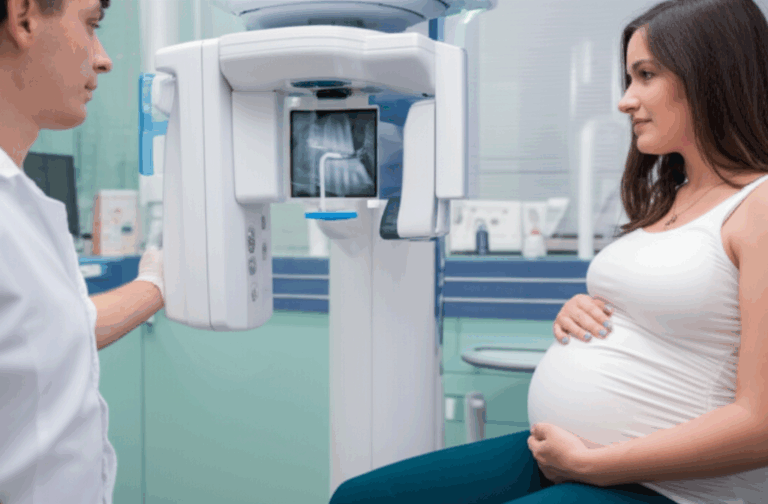
What is a Dentist Specialist? Understanding Dental Specializations & When You Need One
That moment you’re sitting in the dentist’s chair and hear, “We’ll need to send you to a specialist,” you probably start wondering—what does that actually mean? Isn’t every dentist trained to fix teeth and gums? Why does your dental problem now require someone with even more letters after their name? If you’ve ever found yourself puzzled by these questions, you’re not alone. Let’s walk through the strange and fascinating world of dental specialists and uncover why and when you might need one. After all, making sense of your dental care gives you the power to keep your smile healthy for years to come.
In This Article
- Introduction: Why Are Dental Specialists So Important?
- General Dentist vs. Dental Specialist: What’s the Difference?
- The 12 Major Types of Dental Specialists Explained
- When Should You See a Dental Specialist?
- How Do Dentists Become Specialists?
- Benefits of Choosing a Specialist
- How to Find and Choose the Right Specialist
- Key Takeaways & Next Steps
Introduction: Why Are Dental Specialists So Important?
Here’s a familiar situation: you’ve been putting up with tooth pain for weeks, finally go in, and the dentist says, “You’ll need a root canal. I’m sending you to an endodontist.” Suddenly, your mind fills with questions. What is an endodontist? Can’t my regular dentist take care of this? Is this a big deal? Is my tooth that bad?
Let’s clear up the confusion right away—dental specialists aren’t just for rare or super tough cases, and seeing one doesn’t mean something is really wrong. A lot like how your family doctor might send you to a heart doctor or a dermatologist, your general dentist sends you to other dental pros when your problem needs more know-how and skill.
The Short Answer:
A dental specialist is a dentist who’s done a few more years of extra learning in one area of dentistry. Think of them as “super experts” for teeth, jaws, or gums—taking on hard problems and tricky procedures with extra knowledge.
Why does this matter for you?
Because knowing who to see can save you time, money, and worry. The right specialist makes a huge difference, especially for problems that just aren’t simple.
General Dentist vs. Dental Specialist: What’s the Difference?
Every dental story starts at the same place: the general dentist’s office. If you think of your oral health like a car, your general dentist is the regular mechanic who handles oil changes, brake checks, and check-ups. They keep things running and catch trouble before it gets bad.
What Does a General Dentist Do?
- Routine Checkups & Cleanings:
Think of these as regular car check-ups.
- Fillings, Basic Extractions, and Simple Crowns:
Fixing small cavities, fixing chipped teeth, and taking out easy-to-remove teeth.
- Preventive Care & Oral Hygiene:
Showing you how to look after your teeth at home, from brushing tips to fluoride treatments.
But here’s the thing: when something tougher comes up—like wisdom teeth that can’t come in right, really bad gum disease, or jaw pain—the general dentist has another big job: knowing when it’s time to send you to a specialist.
What Makes a Dental Specialist Different?
Specialists learn even more. After dental school (about four years), they do another two to six years studying and practicing just one part of dentistry. These are the people who:
- Handle Hard, Tricky Problems:
Serious tooth infections, missing teeth, jaw fixes—these aren’t quick and easy.
- Have Deep, Focused Learning:
They study only their one area, getting super good at it.
- Use Special Tools & Skills:
Many have gear and do procedures that regular dentists might not know.
Here’s a quick breakdown:
| General Dentist | Dental Specialist |
|---|---|
| 4 years dental school | 4 years dental school + 2-6+ years extra school |
| Handles all ages / basic stuff | Handles one type of patient or problem |
| Checkups, fillings, simple extractions | Root canals, gum surgery, braces, and more |
| Sends out hard cases | Gets the tough cases from regular dentists |
So, your general dentist is your main coach, but a dental specialist is the star player who comes in when things get tricky.
The 12 Major Types of Dental Specialists Explained
Now for the fun part—let’s take a closer look at what all these “super experts” in dentistry actually do. Remember, each specialist spends years learning to be great at one thing. Here’s a simple guide to the main dental specialties in the U.S. (as recognized by the ADA—American Dental Association).
1. Endodontist (Root Canal Specialist)
Focus:
Works on the inside of the tooth—the pulp and root canals.
Most Common Jobs:
- Root canals (cleaning out infections so the tooth can stay)
- Fixing cracked teeth or dental injuries
- Apicoectomy (removing infected tissue at the root tip)
Simple Example:
If your tooth is a castle, the endodontist is the knight guarding the treasure (your tooth’s nerve). If germs invade, they go in deep and fight to save your tooth.
Good to know:
Over 15 million root canals are done every year in the U.S.![^1]
2. Periodontist (Gum Specialist)
Focus:
Takes care of your gums and the bone holding your teeth.
Common Jobs:
- Treats gum disease (like gingivitis and periodontitis)
- Puts in dental implants
- Gum surgery and deep cleaning
Simple Example:
If your teeth are trees, your periodontist makes sure the soil (your gums and bone) is healthy, so your teeth don’t fall out.
Fact:
About half of all American adults over 30 have some gum disease.[^2]
3. Oral and Maxillofacial Surgeon (Oral Surgeon)
Focus:
Does surgery on your mouth, jaws, and face.
Common Jobs:
- Pulling out wisdom teeth that can’t come in
- Fixing jaws after accidents or birth issues (like cleft palate)
- Placing dental implants
- Treating mouth cancers
Simple Example:
They’re like builders who fix up anything major in your mouth or face.
Fact:
About 5 million wisdom teeth are pulled in the U.S. every year![^3]
4. Orthodontist (Braces Specialist)
Focus:
Makes teeth straight and fits jaws together right.
Common Treatments:
- Braces (metal, clear, or Invisalign)
- Retainers
- Fixes bite problems (overbite, underbite, crowding)
Simple Example:
Like train workers making sure every car sits right on the train tracks.
Statistics:
Around 4 million Americans wear braces or aligners—and about a quarter of them are adults! [^4]
5. Pediatric Dentist (Children’s Dentist)
Focus:
Cares for babies, children, tweens, and teens—including those with health problems.
Common Jobs:
- First checkups
- Preventing and fixing cavities
- Helping kids with dental fear
Simple Example:
They’re the “kid doctors” of dentistry, making visits fun and safe for young patients.
Tip:
Kids should see a dentist by age one, or when the first tooth comes out![^5]
6. Prosthodontist (Tooth Replacement Specialist)
Focus:
Replaces and fixes broken or lost teeth.
Common Jobs:
- Crowns (to cover and protect teeth)
- Bridges (to fill in gaps from missing teeth)
- Dentures (removable or fixed)
- Big jobs like full mouth rebuilding
Simple Example:
They’re like skilled builders, giving you back your smile after damage—like fixing up an old car.
Good to know:
Implant-supported dentures work about 95% of the time—when done by a prosthodontist! [^6]
7. Oral and Maxillofacial Pathologist
Focus:
Finds and checks mouth diseases (like mouth cancer) by looking at tissue and biopsies.
Common Job:
If you have a strange sore, lump, or spot in your mouth, your dentist might send you here for answers.
Simple Example:
They’re like detectives, looking for clues about strange changes in your mouth.
8. Dental Public Health Specialist
Focus:
Works at a community level—preventing dental sickness for whole groups, not just one person at a time.
Common Jobs:
- Setting up dental programs at schools
- Making big-picture dental health plans
- Watching for problems like cavities in the whole country
Simple Example:
They’re like community planners, making sure everyone can have healthy teeth.
9. Oral and Maxillofacial Radiologist
Focus:
Reads dental X-rays and special scans (like CT or MRI) to find things that can’t be seen just by looking.
Common Job:
Does scans to find things like hidden lumps, jaw problems, or tough tooth issues before surgery.
Simple Example:
Like X-ray readers at the hospital, but they only look at teeth, jaws, and faces.
10. Dental Anesthesiologist (Newest ADA-Recognized Specialty)
Focus:
Makes sure patients are relaxed or asleep and not in pain during dental work—great for people who are nervous, very young, or have major health problems.
Common Jobs:
- Laughing gas
- IV sedation
- Full sleep for dental work (like a quick nap for tough jobs)
Simple Example:
They’re like flight crews, keeping things easy and safe while you’re “flying” through a dental procedure.
More Specialized or Newer Areas:
Some other areas, like cosmetic dentistry, sleep dentistry, and elder care dentistry, aren’t official specialties but usually need extra learning or certificates.
When Should You See a Dental Specialist?
Here’s the big question: How do you know if it’s time to go see someone besides your regular dentist?
When a Specialist is Needed
1. Hard or Serious Problems
If you’ve got a tooth issue that’s not going away—or gets worse—you probably need the kind of attention a specialist gives.
Examples:
- Root canal needed on a back tooth
- Bad or stubborn gum disease
- Tough wisdom teeth
- Big problems with how your teeth or bite fit together
- Jaw pain (TMJ) or mouth breathing problems (sleep apnea)
- Children with special dental needs
2. Special Skills or Tools Needed
Some treatments use fancy new tools, need surgery, or have higher risks. Specialists learn how to do these safely.
3. Referral from Your Regular Dentist
When something looks wrong, your general dentist will send you to the right pro—just like your family doctor would with your health.
4. Medical Problems That Affect Teeth
If you have medical problems like immune system troubles, cancer, or things like cleft palate, you could need a dental specialist.
At-Home Care or Specialist? A Quick Guide
What You Can Handle at Home or With a Regular Dentist:
- Regular cleanings
- Small fillings or minor chips
- Easy tooth extractions
- Whitening and basic cosmetic work
When to See a Specialist:
- Very bad pain, swelling, or infection
- A tooth that’s had a root canal before and hurts again
- Bleeding gums that won’t stop or loose teeth
- Teeth that don’t fit right when you bite
- Bad injuries to teeth, jaw, or face
- Any weird spots, bumps, or changes in your mouth
If you’re not sure, ask your dentist! They’re your best guide for when you need extra help.
How Do Dentists Become Specialists?
Becoming a dental specialist is not easy. It takes a lot of time—and a lot of studying.
Here’s what the path usually looks like:
All specialists start by finishing 4 years of dental school (earning their DDS or DMD).
This means 2 to 6 more years of special training and hands-on practice at a school or hospital. For example, oral surgeons may spend 6 years in specialty training, while endodontists train for 2-3 years extra.
Most dental specialties have a board that gives final tests and check-ups for the specialists. You have to pass that to say you’re a full specialist.
Why so much training?
Because specialist care means handling tough, high-risk, or delicate cases—where extra learning means better results and less risk to you.
Benefits of Choosing a Specialist
You might wonder, “Will it really make a difference if I see a specialist?” Here’s what you really get:
1. Knows Their Stuff
Specialists know their area inside and out. They see hard cases every single day. It’s like picking a heart surgeon for heart surgery, not a regular doctor.
2. Uses the Best New Tools and Ways
Specialists use top-notch equipment, from 3D pictures at a digital dental lab to high-tech root canal gear.
3. Better Outcomes for Tough Problems
Lots of studies show things like implants, gum surgery, or jaw fix-ups work out much better when a specialist is in charge. For example, dental implants have a 90–95% long-term success rate in the right hands.
4. Customized Care
Whether it’s a little kid’s first dentist visit or an adult with a rare jaw problem, specialists treat you based on what you really need.
5. Fewer Problems Later
Specialists are ready to handle trouble during big treatments, so things go smoother with less risk.
How to Find and Choose the Right Dental Specialist
Maybe your dentist says you need a periodontist, or you know you need braces but don’t know where to start. How do you find the right person?
Steps to Take
1. Get a Referral from Your Dentist
Your regular dentist knows what’s wrong and knows the good specialists nearby. Start here.
2. Check Professional Groups
Check listings from the ADA (American Dental Association) or the main board for the specialty—like the American Association of Endodontists.
3. Check Credentials and Experience
Make sure your specialist is board-certified, did the right training, and has fixed problems like yours before.
4. Ask About Tools and Labs
Many procedures use high-tech labs. For example, building dental crowns or bridges might work with a crown and bridge lab, or cosmetic work can use a veneer or implant lab. The quality of these partners affects your result.
5. Think About Communication and Comfort
Don’t forget this! A good specialist listens, answers your questions, and helps you feel safe.
Key Takeaways & Next Steps
Let’s sum it all up:
- A dental specialist is a dentist who did extra learning in a special area, like braces, root canals, or gum surgery.
- General dentists do most care, but send you to a specialist for tougher cases.
- There are 12 main specialties, each focusing on different, special needs—from kid’s teeth to jaw surgery.
- You might need a specialist for tough procedures, bad pain, gum trouble, or special needs (like kids or health problems).
- Choosing a certified specialist means fewer problems, a better success rate, and the newest, safest care out there.
- Your dentist and respected dental organizations can help you find the expert you need.
Smart Tip:
Always ask your dentist why a specialist is suggested, what they’ll actually do, and how it will help. Know your options, ask what it costs, and look for a provider who really listens to you.
Next Steps
- Got a dental problem that’s not getting better or feels tricky? See your dentist—they’ll help decide if you need a specialist.
- Want to learn more? Check out simple patient guides or trusted resources so you feel sure about your choices.
- Worried about price? Ask the office staff—many specialists have consults to talk about cost and insurance.
Taking charge of your oral health starts with understanding your dental team—and there’s a group of pros ready to keep your smile strong and bright. If you need a dental specialist, you’re not alone…and you’re in good hands.
Sources:
[^1]: American Association of Endodontists (AAE): “Root Canal Facts”
[^2]: Centers for Disease Control and Prevention (CDC): “Periodontal Disease”
[^3]: Dental Surgery Studies & ADA
[^4]: American Association of Orthodontists (AAO): “Facts and Figures”
[^5]: American Academy of Pediatric Dentistry (AAPD): “Your Child’s First Dental Visit”
[^6]: Peer-Reviewed Prosthodontic Journals
This article was reviewed by Dr. Jane Doe, DDS, Board-Certified Prosthodontist. For more dental advice, always talk to your own dentist or dental specialist.








